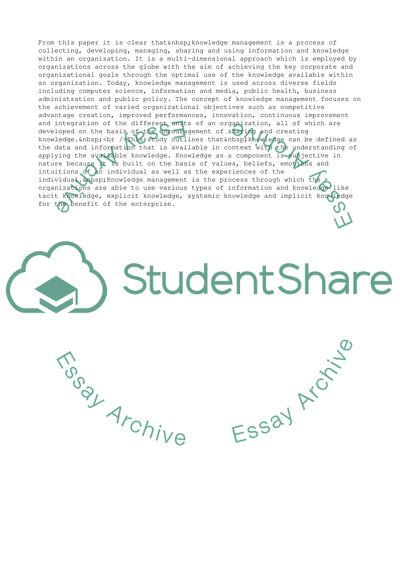Cite this document
(“Contemporary Issues: Knowledge Management Essay”, n.d.)
Contemporary Issues: Knowledge Management Essay. Retrieved from https://studentshare.org/business/1682204-contemporary-issues-knowledge-management
Contemporary Issues: Knowledge Management Essay. Retrieved from https://studentshare.org/business/1682204-contemporary-issues-knowledge-management
(Contemporary Issues: Knowledge Management Essay)
Contemporary Issues: Knowledge Management Essay. https://studentshare.org/business/1682204-contemporary-issues-knowledge-management.
Contemporary Issues: Knowledge Management Essay. https://studentshare.org/business/1682204-contemporary-issues-knowledge-management.
“Contemporary Issues: Knowledge Management Essay”, n.d. https://studentshare.org/business/1682204-contemporary-issues-knowledge-management.


